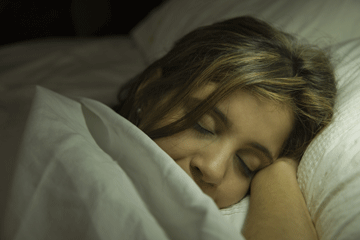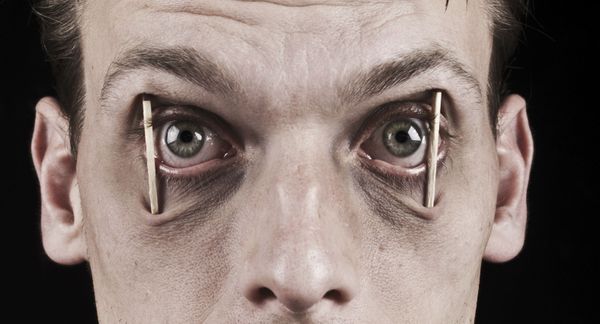At midnight, I woke to the sound of my baby crying, his wails blaring out of the monitor on my nightstand. As I stumbled to his room, the buzzer rang, which meant someone was downstairs trying to be let in. Wondering who in his or her right mind would want to visit parents of a newborn at midnight, I looked out the window but couldn't see anyone, figured it was a prank and ignored it.
At 3 a.m., I woke with a start, again to the sound of his cries. In the hallway, I ran into one of my two dogs, Monkey, who was crying and pacing, her nails click-click-clicking on the hardwood floors. As I wondered why, I heard a knock on my door, looked through the peephole and saw a police officer.
Advertisement
"So someone is home," he said as I opened the door, squinting in the fluorescent hallway lights. "Do you know where your dog is?"
"My dogs are in here," I replied defensively.
"Are you sure about that?"
I wasn't sure about anything. I wasn't even sure I had clothes on when I opened the door, though thankfully I did. Since the birth of my son six months prior, I'd made the rough transition from a monophasic sleep schedule, sleeping in one large block overnight, to a polyphasic one, or dozing in small bouts multiple times in a 24-hour period. I was tired and fuzzy-headed all the time.
While the police officer radioed downstairs, my sleep-deprived brain struggled through a slow rewind of the evening: I remembered coming home from the vet, hauling a very tired baby, diaper bag, car seat and two 75-pound dogs up three flights of stairs and, I thought, into the apartment. I remembered getting the baby to bed, then collapsing on the couch with my husband and a frozen pizza, which I had no recollection of eating before I fell asleep. My husband woke me up to go to bed and then ...
"Hey lady? I've got your dog restrained downstairs. It was loose in the hallway. Your downstairs neighbors came home and it started barking at them through the front door. They tried to buzz and call you but you never answered, so they called us," he paused, then said with a smirk, "I've got to know: How do you not know if your own dog is in your apartment?"
Good question, but I wasn't about to explain polyphasic sleep deprivation to him while my bewildered dog waited downstairs. Rest assured, the answers can be found in the pages that follow.
Advertisement





